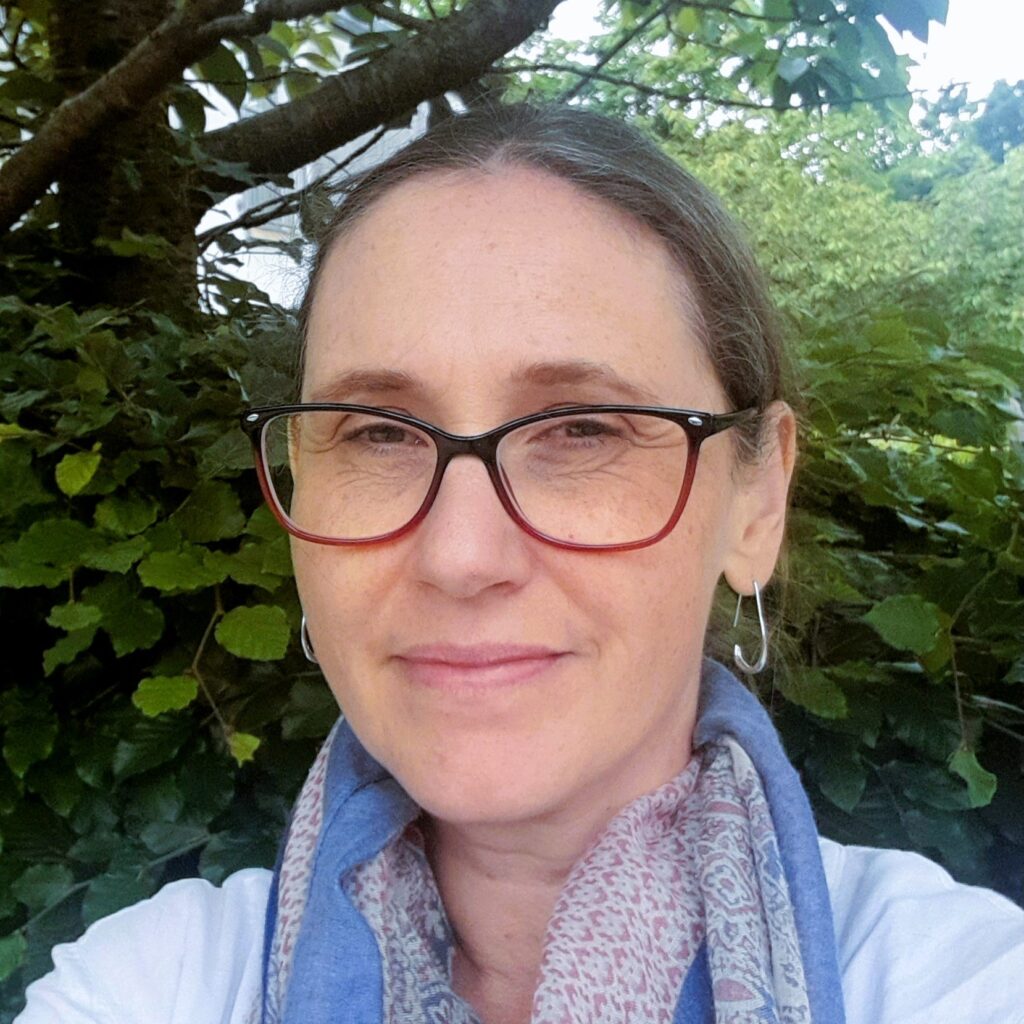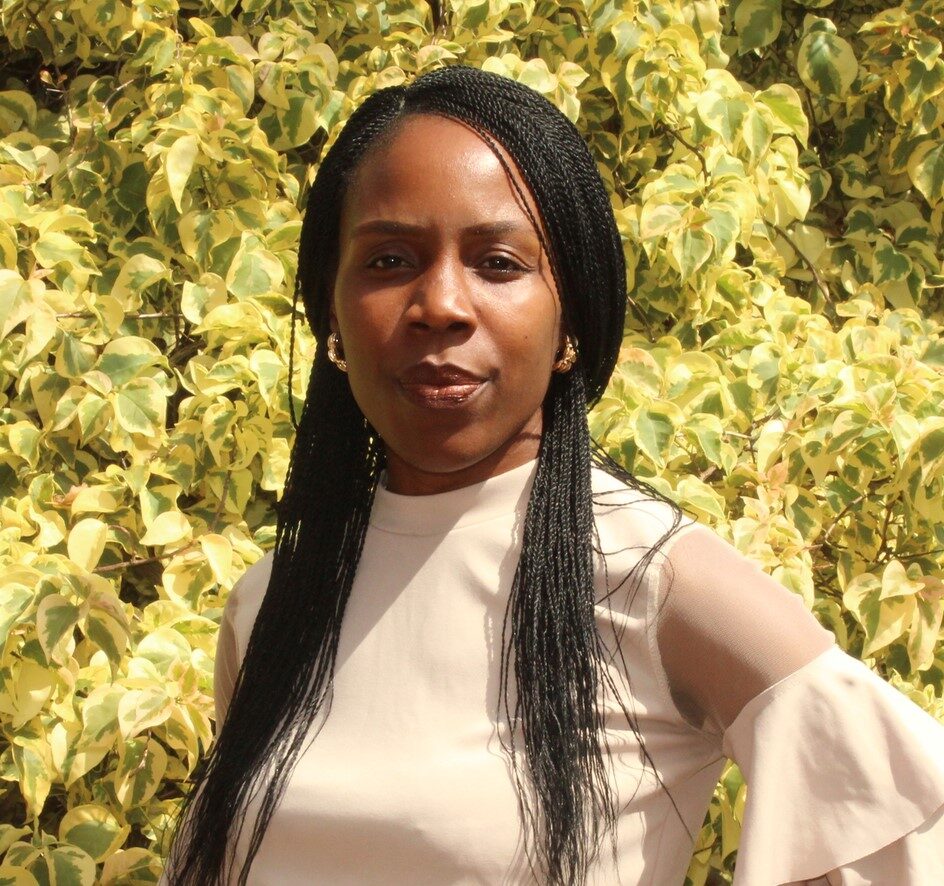This seminar series—supported by funding from the Faculty of Arts & Humanities of King’s College London—brings together a range of international researchers and academics to explore new topics and ideas around the development of creative economies in Africa. We aim to hold 6 online seminars in 2024-2025. The seminars are open to all. If you would like to receive updates via email, please subscribe to our mailing list. You can also view previous workshops on our YouTube channel.
SEMINAR 6: The Employment Experiences of South African Visual Artists
Presented by Irma Booyens (paper with Brian J. Hracs and Roberta Comunian)
2nd of April 2025, 2pm UK time.
Register here to attend: https://us02web.zoom.us/webinar/register/WN_RtQvMvQsQnWUmKnfzEbnVQ

The sixth seminar of our series will see Irma Booyens, Associate Professor (Senior Lecturer in the UK) at the University of Strathclyde Business School, Department of Work, Employment and Organisation explore the employment experiences of South African Visual Artists.
The paper explores the employment experiences of visual artists in the understudied context of South Africa. Drawing on 30 interviews conducted before and after the COVID-19 pandemic, and an intersectional approach, it analyses the work/life strategies these entrepreneurs use to navigate art worlds and sustain their artistic practices and livelihoods. Three key areas will be discussed: 1) spatial dynamics, such as locational choice and the micro-spatialities of work; 2) social dynamics, including networks and sources of support; and 3) commercial dynamics related to generating value and promoting and selling artworks. The findings demonstrate that multiple dimensions of intersectionality, from race and gender to childcare responsibilities and support from partners shape the geographies, working lives, career prospects and strategies of artists. They also highlight how personal and professional lives are intertwined and how digital technologies enhance the feasibility and effectiveness of practices and strategies. Through a Global South perspective, the paper contributes to existing studies within geography on creative labour and the role of technological change in the workplace and creative industries more broadly.
Speaker biography: Irma Booyens is an Associate Professor (Senior Lecturer in the UK) at the University of Strathclyde Business School, Department of Work, Employment and Organisation, in tourism sustainability, work and employment. Currently, she also holds a Senior Research Associate affiliation with the School of Tourism & Hospitality, University of Johannesburg. In 2015, she obtained a PhD in geography with a focus on tourism from the same institution. She has a multi-disciplinary background in both academic and policy research having worked at a research consultancy, a national social science research institute (in South Africa) and in academia/higher education. Her research interests include tourism work and employment issues; local and regional economic development; innovation for development and sustainability; tourism sustainability; and creative economies.
SEMINAR 5: “Afrobeat is Way too Big:” Attempting a Conceptualization of a Larger-than-Life Afro-Atlantic Music Form
Dr Mopelolade O. Ogunbowale
28th February 2025. Watch the recording https://youtu.be/XbZ9Y3FVlNQ
The fifth seminar of our series focuses on Afrobeats with Mopelolade O. Ogunbowale is an Assistant Professor at the Department of Africana and American Studies, University at Buffalo
Read more
The fifth seminar of our series focuses on Afrobeats with Mopelolade O. Ogunbowale is an Assistant Professor at the Department of Africana and American Studies, University at Buffalo.
Afrobeats’ rise to global prominence is inspiring knowledge production across several disciplines in the academy. There is growing body of scholarship within the fields of gender studies, literature, musicology and sociology accounting for Afrobeats’ history, globalization, sonic innovations, embodied practices, gender and sexual politics. Despite these groundbreaking efforts, existing scholarship continues to struggles with providing a holistic conceptualization or a “working definition” for Afrobeats that is beyond its sonic composition and stylistic innovations. Without a doubt, extant literature account for the genres’ West African and Black Atlantic historical and musical roots and to a lesser extent, its embodied, gendered and performance practices. Yet, the question of what is or what constitutes Afrobeats remains marginally explored in existing literature. In this paper, I offer useful interventions into these discourses by providing four ways of thinking through Afrobeats, a larger-than-life Afro-Atlantic music form that is slowly gaining scholarly interest and attention. By conceptualizing Afrobeats as fusion music, a dance and fashion movement with a countercultural gender and sexual regime, this paper attempts to provide a “working definition” and a foundational framework for through Afrobeats music
Mopelolade O. Ogunbowale is an Assistant Professor at the Department of Africana and American Studies, University at Buffalo where she teaches and conducts research in Afro-Atlantic popular music, religions, feminist and urban studies. Her book project, The Spirit is the Music: Osun’s Aesthetic Manifestations in Reggae-Dancehall Music reads the rhythm and resistance politics of Konto (a reggae-dancehall styled music genre produced in Ajegunle, Lagos) as representative of the creativity, rebelliousness and feminist resistance of Osun (an Afro-Atlantic Goddess synonymous with creation, fluidity, benevolence and malevolence).
Afrobeats’ rise to global prominence is inspiring knowledge production across several disciplines in the academy. There is growing body of scholarship within the fields of gender studies, literature, musicology and sociology accounting for Afrobeats’ history, globalization, sonic innovations, embodied practices, gender and sexual politics. Despite these groundbreaking efforts, existing scholarship continues to struggles with providing a holistic conceptualization or a “working definition” for Afrobeats that is beyond its sonic composition and stylistic innovations. Without a doubt, extant literature account for the genres’ West African and Black Atlantic historical and musical roots and to a lesser extent, its embodied, gendered and performance practices. Yet, the question of what is or what constitutes Afrobeats remains marginally explored in existing literature. In this paper, I offer useful interventions into these discourses by providing four ways of thinking through Afrobeats, a larger-than-life Afro-Atlantic music form that is slowly gaining scholarly interest and attention. By conceptualizing Afrobeats as fusion music, a dance and fashion movement with a countercultural gender and sexual regime, this paper attempts to provide a “working definition” and a foundational framework for through Afrobeats music
Mopelolade O. Ogunbowale is an Assistant Professor at the Department of Africana and American Studies, University at Buffalo where she teaches and conducts research in Afro-Atlantic popular music, religions, feminist and urban studies. Her book project, The Spirit is the Music: Osun’s Aesthetic Manifestations in Reggae-Dancehall Music reads the rhythm and resistance politics of Konto (a reggae-dancehall styled music genre produced in Ajegunle, Lagos) as representative of the creativity, rebelliousness and feminist resistance of Osun (an Afro-Atlantic Goddess synonymous with creation, fluidity, benevolence and malevolence).
Seminar 4: Hidden in Plain Sight: YouTube and Nollywood’s Reinvention of Minor Transnational Practices
17th February 2025, 1pm GMT Online
Watch the recording https://youtu.be/XbZ9Y3FVlNQ
The fourth seminar of our seminar series considers the impact and changes brought by YouTube on the Nigeria film and media landscape through the research of Dr Alessandro Jedlowski, an Associate Professor in African Studies at Sciences Po Bordeaux.
Read More

The fourth seminar of our seminar series considers the impact and changes brought by YouTube on the Nigeria film and media landscape through the research of Dr Alessandro Jedlowski, an Associate Professor in African Studies at Sciences Po Bordeaux.
Abstract: Most research on recent transformations in the economics of Nollywood film distribution focused on the impact of the Nigerian platform iROKO.tv and, more recently, on the consequences of the penetration of international platforms such as the American Netflix and the South African Showmax in Nigeria. Much less attention has been devoted to analysing the role of YouTube in the industry’s recent economic transformations, particularly with regard to the repositioning of historical economic players in the industry, such as the marketers (the distributors/producers who controlled the economy of early Nollywood), and to the emergence of new players such as content producers sponsored by local banks and young independent directors, otherwise marginalised by the monopolisation of the existing distribution networks in few international corporate hands. Combining data from long term ethnographic fieldwork in Nigeria with more recent observations collected through digital ethnography (conducted from 2020) about the presence of Nollywood on YouTube, this chapter investigates the different facets of the role YouTube has played in the recent history of Nollywood to highlight the nuances and contradictions of the realities that the introduction of film distribution platforms in Nigeria contributed to create.
Biography: Alessandro Jedlowski is an Associate Professor in African Studies at Sciences Po Bordeaux (France). His main research interests are African screen media industries (in particular in Nigeria, Côte d’Ivoire, Ethiopia), South-South cultural and media circulation networks (in particular China-Africa), the interaction between media and migration, and the processes of cultural and media production by African diasporas in Europe.
SEMINAR 3: Gentrifying Nollywood?: Examining Folklore, Regeneration, and Industry Shifts in Nigerian Cinema
28th November 2024, 2pm GMT
Watch the recording https://www.youtube.com/watch?v=MPeNgfPjvGY
The third seminar of our series focuses on the evolution of Nollywood through the research of Dr Ezinne Ezepue, a lecturer of film studies at the University of Nigeria, is currently a postdoctoral researcher of African storytelling at the Internationale Filmschule (ifs), Köln.
Read more
Synopsis: The Nigerian film industry, Nollywood, has experienced significant transformations, fuelled by rising international interest, increased investment, and evolving distribution channels. In previous studies (Ezepue 2020a, 2020b) I have queried how transformations leading to class/standard separations and displacement could mean a possible gentrification of the industry. Rather than the traditional definition of the concept, I adopted gentrification as a neologism and hence, a metaphor to examine and understand changes in Nollywood production, distribution and consumption. I revisit deductions from these studies based on recent changes that have further reshaped the industry. Beyond the regenerating traits discussed in the papers, I include in this current exploration the import of growing folklore-inspired narratives and the dual force (symbol of resistance and subtle conduit) they may be lending to the gentrification discourse. Is folklore resurgence fostering cultural continuity and market expansion or inadvertently aligning with gentrifying trends which reshape and commercialize traditional storytelling? Through an analysis of contemporary industry shifts, I further explore my curiosities around a possible gentrification of Nollywood, including an evaluation of the regenerative value of folklore adaptations in the industry.
Ezinne Ezepue, a lecturer of film studies at the University of Nigeria, is currently a postdoctoral researcher of African storytelling at the Internationale Filmschule (ifs), Köln. Her research, funded by the Alexander von Humboldt, is focused on African folktale adaptation. Ezepue hopes to develop a toolkit for adapting folktales into contemporary narratives that will address social problems, unseat stereotypes about Africa and promote positive identity.
She holds a BA Theatre & Film from the University of Nigeria, a MA Film & TV from University of Birmingham and a PhD in Media Studies from Birmingham City University, United Kingdom. Before her research interest expanded to African cinema and storytelling, Ezepue researched on the Nigerian film industry, Nollywood, on which she is published in both books and journals.https://www.researchgate.net/profile/Ezinne-Ezepue/research
References
Ezepue, E. (2020a) The New Nollywood: Professionalization or Gentrification of Cultural Industry. Sage Open. 10(3):1-10. https://doi.org/10.1177/2158244020940994.
Ezepue, E. (2020b) Gentrification in Media Spaces: Nollywood in Perspective. Cogent Arts & Humanities. 7(1):1-12. https://doi.org/10.1080/23311983.2020.1849971.
SEMINAR 2: Trading and protecting cultural goods in Africa: economic and socio-cultural perspective
Dr Patrick Kabanda
Watch the recording https://www.youtube.com/watch?v=MPeNgfPjvGY
The second seminar will include a paper on Trading and protecting cultural goods in Africa: economic and socio-cultural perspective by Patrick Kabanda (Author of The Creative Wealth of Nations
Can the Arts Advance Development?)
Read more
Synopsis: Africa’s arts and cultural wealth, which is immensely rich, can make a significant contribution to the continents progress. Yet, as the United Nations Development Programme puts it, Africa’s share of the global creative economy represents less than 1 per cent of Africa’s Gross Domestic Product, which, as of 2023, was around $3 trillion. Why is that the case? One way to change this picture is to promote meaningful trade in Africa’s creative products in the framework of economic diversification. Along those lines, this seminar will explore questions such as the following: How can Africa boost its trade in creative services using the World Trade Organization’s Four Modes of Supply? How can the African Continental Free Trade Area fully expand Africa’s creative trade? What are the best ways to preserve Africa’s cultural output? And finally, since the arts’ contribution is beyond monetary reward, in what ways can the social contribution of trade in African creative output be better promoted?
The seminar will be chaired by Prof. Jen Snowball (Rhodes University)

Patrick Kabanda
Patrick Kabanda is a Juilliard-trained organist and a Fletcher-trained international affairs professional. He received Juilliard’s William Schuman Prize for outstanding achievement and leadership in music in 2003, and from 2012 to 2013 he was a Charles Francis Adams Scholar at The Fletcher School. Besides concertizing and lecturing worldwide, he has taught at Phillips Academy, consulted for the World Bank’s Office of the Senior Vice President and Chief Economist, and contributed to the World Development Report 2016 and UNDP’s Human Development Report 2015. He was awarded the 2013 Presidential Award for Citizenship and Public Service from Tufts University, Massachusetts.
SEMINAR 1: Creative economies across platforms and digital economies
18th March 2024
The first seminar will include two papers. Locating African Cultural Agency in the Global Digital Economy: The Case of Music Platform Insider Activists by Jaana Serres (University of Groningen) and Imaginaries of platform entrepreneurship: techno-optimism and subversion in Ghanaian filmmaking by Robin Steedman (Copenhagen Business School)
The seminar now available on our Youtube channel watch it here: https://www.youtube.com/watch?v=D1ROD0IqpCQ&t=9s
Read more
Locating African Cultural Agency in the Global Digital Economy: The Case of Music Platform Insider Activists. While academic literature commonly denounces the corporate takeover, or recolonization, of African cultural industries associated with digital capitalism, African music stakeholders widely enact digital platforms as political vehicles to be seized upon for resistance against global marginalization. The past few years have witnessed a significant evolution in platforms’ intermediary function—from the Chinese-owned Boomplay and American startup Audiomack that dominate the continent’s music streaming market, to the GAFA’s newly aggressive strategy in Africa—they have emerged as actors of African music industries. Moving beyond the academic focus on data colonialism and the reproduction of hegemonies through algorithmic bias, this presentation foregrounds the self-identified “African” agents who steer these corporations and the symbolic, economic, and affective practices that they mediate in order to account for the hopes and political stakes invested into platform capitalism from the continent.

Jaana Serres is a postdoctoral researcher in media, cultural industries, and society at the University of Groningen. From 2018 to 2021, she was the Ioma Evans‐Pritchard scholar in the social anthropology of Africa at Oxford University, where she completed her PhD on the “Africa to the world” movement through the lens of the Nigerian music industry. Prior to her academic career, Jaana practiced law in New York, Paris and London, where she advised multilateral organizations, African governments, and multinational corporations.
Imaginaries of platform entrepreneurship: techno-optimism and subversion in Ghanaian filmmaking Do platforms offer a level playing field to hitherto marginalized filmmakers, such as African filmmakers? Are these platforms a space where anything is possible? According to techno optimist imaginaries—imaginaries commonly propagated by Silicon Valley—the answer is yes. But such imaginaries of digital reach, growth, and prosperity must be rigorously interrogated. In this presentation that is precisely what I will do through the case of filmmakers in Ghana. I will show that platforms are taken up techno-optimistically by filmmakers in Ghana, but that this is only part of the story. Equally, filmmakers critique platforms and reflect carefully on the skills and access needed to benefit from them. Even more powerfully, they subvert universalizing imaginaries through the creation of distinctly Ghanaian alternatives.

Robin Steedman is a Postdoctoral Researcher in Creative Industries in Africa at Copenhagen Business School. She is interested in global creative and cultural industries, and in questions of diversity and inequality in media production, distribution, and viewership. Her work has been published in journals, such as Poetics, Information, Communication & Society, and Environment and Planning A. Her first book, Creative Hustling: Women Making and Distributing Films from Nairobi, was recently published by The MIT Press.
